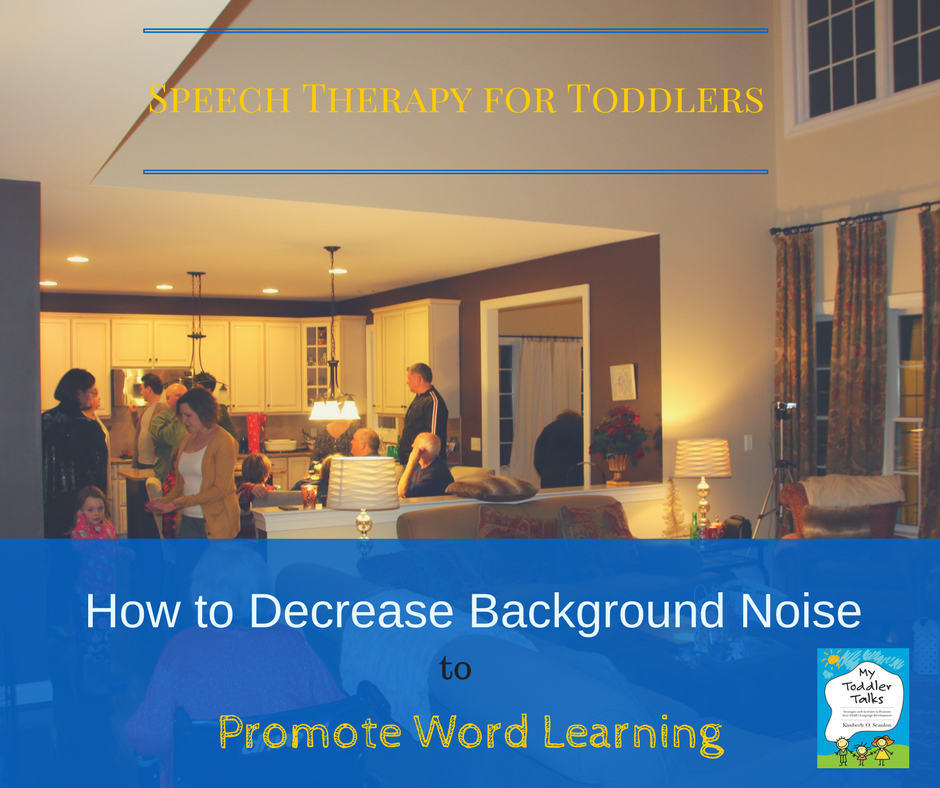How to Decrease Background Noise to Promote Word Learning in Early Intervention
Photo Credit: cseeman Flickr
Recent research is confirming that background noise inhibits children’s ability to acquire new words. Psychologists from the University of Wisconsin in Madison, Brianna T. M. McMillan and Jenny R. Saffran found in their repeated studies that:
When presented with novel words that were only 5 dB louder than the background speech, toddlers showed no evidence of word learning. However, toddlers did successfully learn the novel words when the background speech was 10 dB quieter than the target speech."
This may seem like common sense but take a moment to think about how often you and your loved ones are inundated with background noise: outside, in the store, in church, in the car, at daycare, at school, and at home.
You can’t possibly control the background noise in all of these environments. But, you can limit loud background noise in two important places – in your home and in your car. Give your toddler every advantage and possible opportunity to learn new words without distractions. Viewing a speech bananagram (click here to download one) will help you learn what speech sounds and noises your toddler can hear and make you realize the significance of a 10-decibel difference.
As a speech language pathologist who had worked in and out of my clients’ homes for years, I would always start my sessions politely asking for a quiet, peaceful place. If you are a traveling therapist who works in urban areas, the following tips may be particularly useful because research shows that homes in urban environments tend to have higher levels of environmental and background noise.
4 Ways to Minimize Background Noise for an Effective Speech Therapy Session
Turn off the television, radio, or any electronic devices emitting sounds.
Ask other family members or housemates to move to another room in the house or apartment to decrease multi talker background noise.
If siblings are home and can’t entertain themselves, then, if possible, include the siblings in the treatment session.
Look for a room that is ideal for minimizing background noises and distractions. For instance, a rug or wall-to-wall carpet and heavy drapes around the windows will help to absorb some noise.
How else can you minimize background noise in your home or in the home of the family you are treating or in your car?
UPDATE 2020: Have you considered how face masks may effect communication and language development? If you are looking for information and tips on how to improve communication, understanding, and acoustic clarity, please read this informative blog post:
A Child-Friendly Approach to Face Masks
Reference: McMillan, B.T.M. & Saffran, J.R. (2016). Learning in complex environments: the effects of background speech on early word learning. Child Development, 00(0), 1-15.
